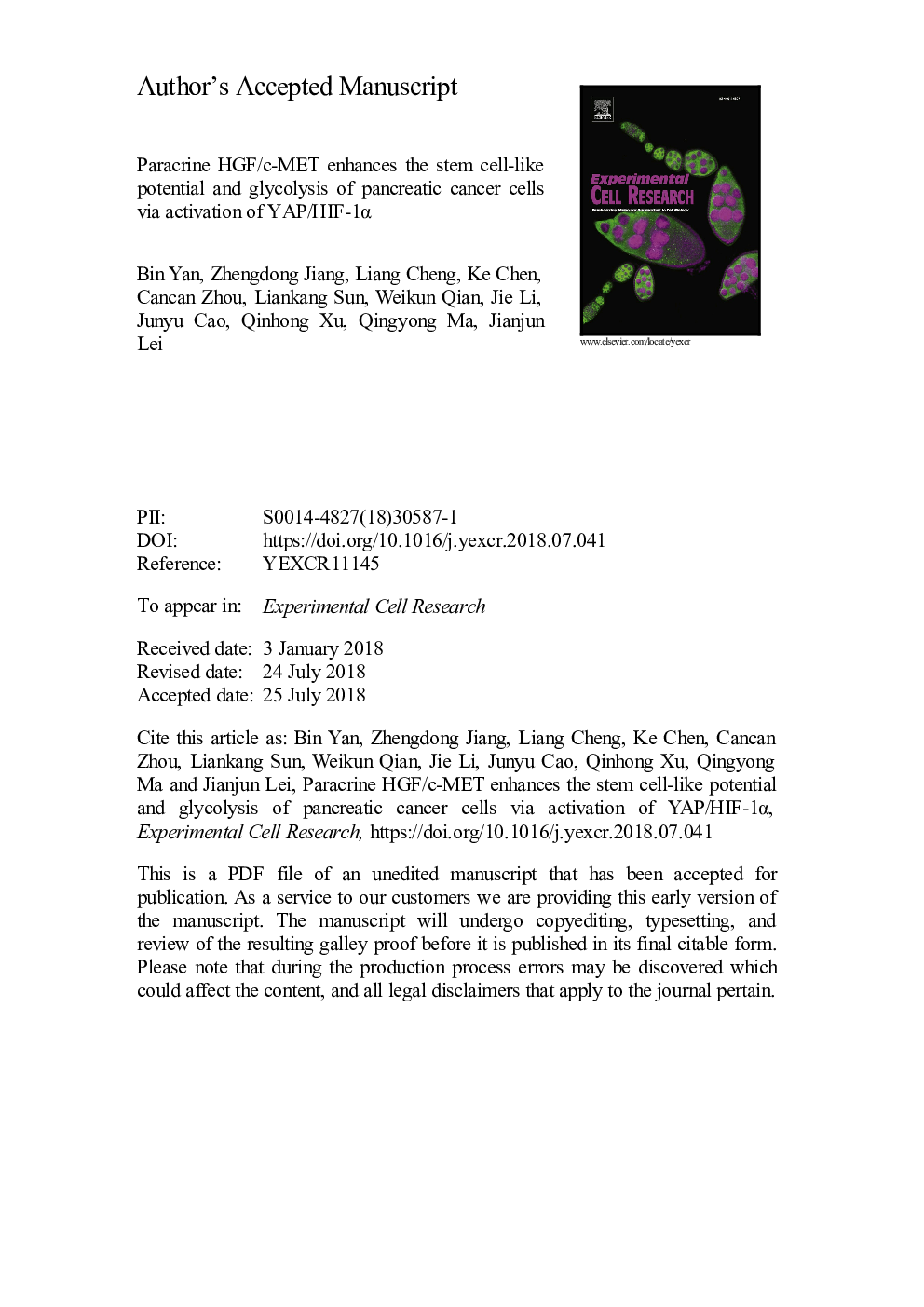| Article ID | Journal | Published Year | Pages | File Type |
|---|---|---|---|---|
| 8962156 | Experimental Cell Research | 2018 | 23 Pages |
Abstract
Pancreatic stellate cells (PSCs), a pivotal component of the tumor microenvironment, contribute to tumor growth and metastasis. PSC-derived factors are essential for triggering the generation and maintenance of cancer stem cells (CSCs). However, the mechanisms by which paracrine signals regulate CSC-like properties such as glycolytic metabolism have not been fully elucidated. Here, we report that two pancreatic cancer cell lines, Panc-1 and MiaPaCa-2, reacted differently when treated with hepatocyte growth factor (HGF) secreted from PSCs. MiaPaCa-2 cells showed little response with regard to CSC-like properties after HGF treatment. We have shown that in Panc-1 cells by activating its cognate receptor c-MET, paracrine HGF resulted in YAP nuclear translocation and HIF-1α stabilization, thereby promoting the expression of CSC pluripotency markers NANOG, OCT-4 and SOX-2 and tumor sphere formation ability. Furthermore, HGF/c-MET/YAP/HIF-1α signaling enhanced the expression of Hexokinase 2 (HK2) and promoted glycolytic metabolism, which may facilitate CSC-like properties. Collectively, our study demonstrated that HGF/c-MET modulates tumor metabostemness by regulating YAP/HIF-1α and may hold promise as a potential therapeutic target against pancreatic cancer.
Related Topics
Life Sciences
Biochemistry, Genetics and Molecular Biology
Cancer Research
Authors
Bin Yan, Zhengdong Jiang, Liang Cheng, Ke Chen, Cancan Zhou, Liankang Sun, Weikun Qian, Jie Li, Junyu Cao, Qinhong Xu, Qingyong Ma, Jianjun Lei,
